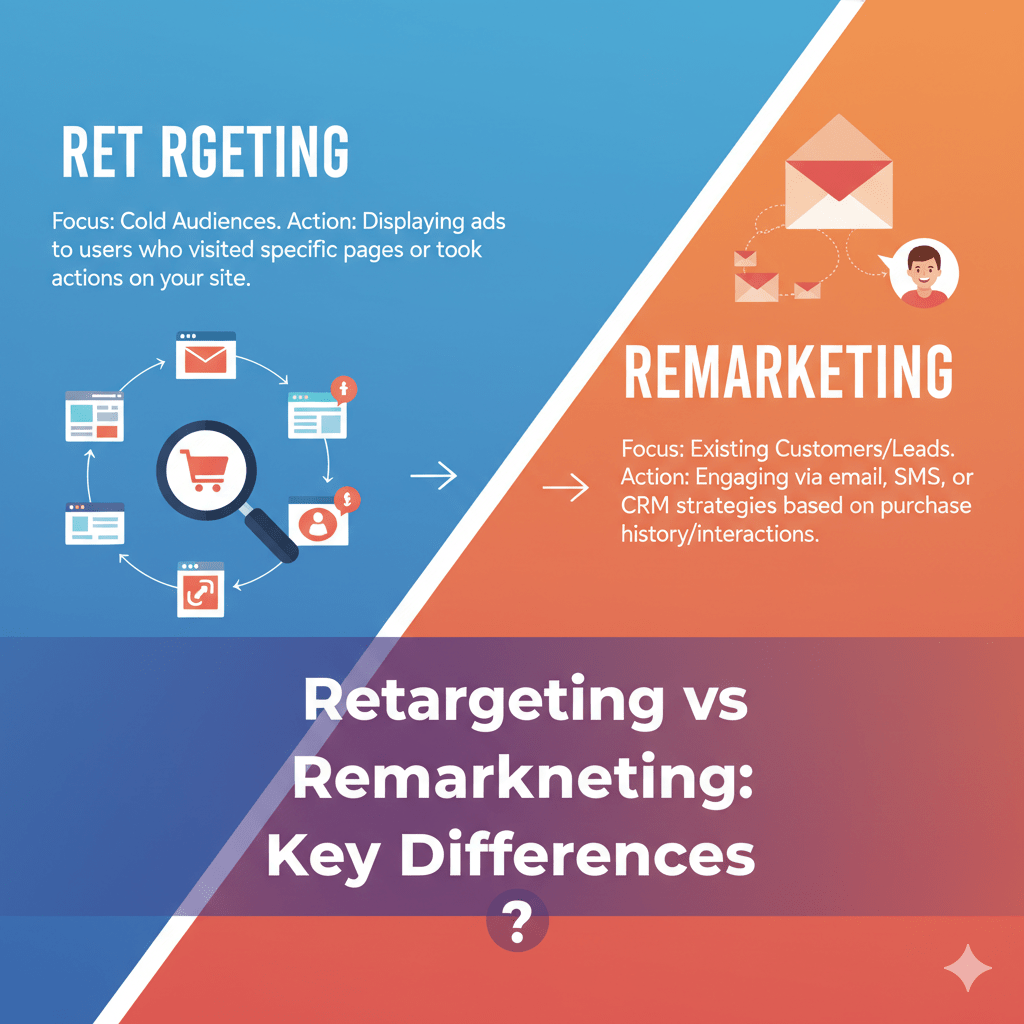Introduction
In digital marketing, two terms often confuse businesses: retargeting and remarketing. While they may sound similar, they are not the same. Both strategies aim to re-engage potential customers who showed interest in your brand but didn’t convert.
Understanding the difference between retargeting and remarketing is crucial for building the right strategy and maximizing ROI.
What is Retargeting?
Retargeting focuses on online ads shown to users who have previously interacted with your website, app, or social media.
For example:
- A user visits your product page but doesn’t purchase. Later, they see ads for the same product on Facebook, Instagram, or YouTube.
Tools commonly used:
Goal: Keep your brand visible, remind users of their interest, and push them to return and complete the purchase.
What is Remarketing?
Remarketing is generally email-based marketing targeted toward users who already engaged with your brand.
For example:
- A customer adds items to their cart but leaves without buying. Later, they receive an email reminder with a discount coupon.
Tools commonly used:
Goal: Reconnect with warm leads or past customers through personalized emails and nurture them toward conversion.
Key Differences Between Retargeting and Remarketing
| Feature | Retargeting | Remarketing |
|---|---|---|
| Channel | Display ads, social media ads | Email marketing |
| Audience | New visitors who didn’t convert | Past customers or warm leads |
| Personalization | Based on browsing behavior | Based on purchase history or email engagement |
| Tools | Google Ads, Facebook Ads, AdRoll | Mailchimp, HubSpot, Klaviyo |
| Goal | Convert new visitors into buyers | Re-engage old or existing customers |
When to Use Retargeting
- To increase conversions from website traffic
- To re-engage users who bounced from product pages
- To promote limited-time offers with urgency
When to Use Remarketing
- To recover abandoned carts with follow-up emails
- To upsell or cross-sell existing customers
- To build loyalty through newsletters and discounts
Conclusion
Both retargeting and remarketing play vital roles in a well-rounded digital marketing strategy. Retargeting helps keep your brand in front of potential customers through ads, while remarketing nurtures existing leads and customers via email campaigns.
The smartest businesses combine both to maximize conversions and build long-term customer relationships.



